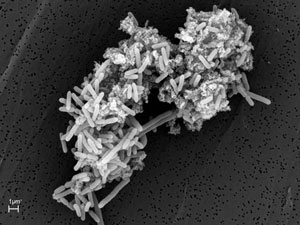US scientists have discovered the first microorganism that anaerobically degrades plant biomass to release sugars for biofuel feedstocks. At present, this is the only known anaerobic microbe capable of solubilising all plant components – including cellulose, glucose, and lignin, which is extremely difficult to break down – at the same time and at similar rates.
Biomass typically needs to be pretreated with strong acids, at high temperatures, to break it down into usable raw materials for biofuel. However, current industrial pretreatment processes are inefficient and expensive, and can pollute the environment.
Herbs and woody plants are potential renewable biofuel feedstocks, but their chemical complexity and high lignin content make them extremely difficult to degrade. Scientists have been trying to find, or bioengineer, microorganisms that can more readily breakdown plant material and produce desired biofuels directly from untreated biomass.
Interested to know more?
Carbohydrate and lignin are simultaneously solubilized from unpretreated switchgrass by microbial action at high temperature
Irina Kataeva, Marcus B. Foston, Sung-Jae Yang, Sivakumar Pattathil, Ajaya K. Biswal, Farris L. Poole II, Mirko Basen, Amanda M. Rhaesa, Tina P. Thomas, Parastoo Azadi, Victor Olman, Trina D. Saffold, Kyle E. Mohler, Derrick L. Lewis, Crissa Doeppke, Yining Zeng, Timothy J. Tschaplinski, William S. York, Mark Davis, Debra Mohnen, Ying Xu, Art J. Ragauskas, Shi-You Ding, Robert M. Kelly, Michael G. Hahnbd and Michael W. W. Adams
Energy Environ. Sci., 2013, Advance Article
DOI: 10.1039/C3EE40932E











